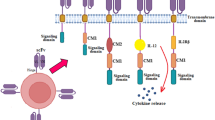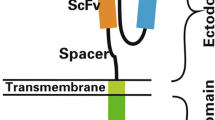Abstract
It is difficult to induce rat cardiac allograft tolerance by co-stimulator blockade of the B7-CD28 pathway with CTLA-4Ig monotherapy alone. However, combined therapies of AdCTLA-4Ig plus donor-specific spleen-cell infusion, bone marrow cell infusion, and anti–ICOS antibody have been demonstrated to effectively induce indefinite acceptance of rat cardiac allografts. In this report, we compared the tolerance of cardiac allograft tolerant recipients induced by the above three strategies. The results show that treating Lewis recipients of a DA cardiac allograft with a combination of AdCTLA4-Ig and anti-ICOS antibody, donor splenocytes or bone marrow cells produced indefinite graft survival. Second transplantation of donor type skin or heart grafts could not affect the survival of primary heart graft in anti-ICOS treated groups, but results in rejection of primary heart grafts in other two groups, and that co-stimulator blockade, CD28 and ICOS simultaneously with CTLA-4Ig and anti-ICOS antibody, facilitates the development of CD25+ CD4+ regulatory T cells and induces stable transplantation tolerance in the rat cardiac allograft model. This also provides an effective therapy in clinical transplantation for promoting permanent graft survival by generating regulatory T cells.


Similar content being viewed by others
Abbreviations
- BMC :
-
bone marrow cells
- ICOS :
-
inducible co-stimulator
- pfu :
-
plaque-forming units
- SPC :
-
spleen cell
Reference
Lin H, Bolling SF, Linsley PS, Wei RQ, Gordon D, Thompson CB, Turka LA. Long-term acceptance of major histocompatibility complex mismatched cardiac allografts induced by CTLA4Ig plus donor-specific transfusion. J Exp Med 1993; 178:1801.
Pearson TC, Alexander DZ, Hendrix R, Elwood ET, Linsley PS, Winn KJ, Larsen CP. CTLA4-Ig plus bone marrow induces long-term allograft survival and donor specific unresponsiveness in the murine model. Evidence for hematopoietic chimerism. Transplantation 1996; 61:997.
Larsen CP, Elwood ET, Alexander DZ, Ritchie SC, Hendrix R, Tucker-Burden C, Cho HR, Aruffo A, Hollenbaugh D, Linsley PS, Winn KJ, Pearson TC. Long-term acceptance of skin and cardiac allografts after blocking CD40 and CD28 pathways. Nature 1996; 381:434.
Guo L, Li XK, Funeshima N, Fujino M, Nagata Y, Kimura H, Amemiya H, Enosawa S, Tsuji T, Harihara Y, Makuuchi M, Suzuki S. Prolonged survival in rat liver transplantation with mouse monoclonal antibody against an inducible costimulator (ICOS). Transplantation 2002; 73:1027.
Ozkaynak E, Gao W, Shemmeri N, Wang C, Gutierrez-Ramos JC, Amaral J, Qin S, Rottman JB, Coyle AJ, Hancock WW. Importance of ICOS-B7RP-1 costimulation in acute and chronic allograft rejection. Nat Immunol 2001; 2:591.
Kita Y, Li XK, Ohba M, Funeshima N, Enosawa S, Tamura A, Suzuki K, Amemiya H, Hayashi S, Kazui T, Suzuki S. Prolonged cardiac allograft survival in rats systemically injected adenoviral vectors containing CTLA4Ig-gene. Transplantation 1999; 68:758.
Kass-Eisler A, Falck-Pedersen E, Alvira M, Rivera J, Buttrick PM, Wittenberg BA, Cipriani L, Leinwand LA. Quantitative determination of adenovirus-mediated gene delivery to rat cardiac myocytes in vitro and in vivo. Proc Natl Acad Sci U S A 1993; 90:11498.
Sakamoto S, Tezuka K, Tsuji T, Hori N, Tamatani T. AILIM/ICOS: its expression and functional analysis with monoclonal antibodies Hybrid. Hybridomics 2001; 20:293.
Ono K, Lindsey ES. Improved technique of heart transplantation in rats. J Thorac Cardiovasc Surg 1969; 57:225.
Heron I. A technique for accessory cervical heart transplantation in rabbits and rats. Acta Pathol Microbiol Scand [A] 1971; 79:366.
Pearson TC, Alexander DZ, Winn KJ, Linsley PS, Lowry RP, Larsen CP. Transplantation tolerance induced by CTLA4-Ig. Transplantation 1994; 57:1701.
Sakaguchi S, Fukuma K, Kuribayashi K, Masuda T. Organ-specific autoimmune diseases induced in mice by elimination of T cell subset. I. Evidence for the active participation of T cells in natural self-tolerance; deficit of a T cell subset as a possible cause of autoimmune disease. J Exp Med 1985; 161:72.
Taguchi O, Nishizuka Y. Self tolerance and localized autoimmunity. Mouse models of autoimmune disease that suggest tissue-specific suppressor T cells are involved in self tolerance. J Exp Med 1987;165:146.
Suri-Payer E, Amar AZ, Thornton AM, Shevach EM. CD4+CD25+ T cells inhibit both the induction and effector function of autoreactive T cells and represent a unique lineage of immunoregulatory cells. J Immunol 1998; 160:1212.
Thornton AM, Shevach EM. CD4+CD25+ immunoregulatory T cells suppress polyclonal T cell activation in vitro by inhibiting interleukin 2 production. J Exp Med 1998; 188:287.
Asano M, Toda M, Sakaguchi N, Sakaguchi S. Autoimmune disease as a consequence of developmental abnormality of a T cell subpopulation. J Exp Med 1996; 184:387.
Takahashi T, Kuniyasu Y, Toda M, Sakaguchi N, Itoh M, Iwata M, Shimizu J, Sakaguchi S. Immunologic self-tolerance maintained by CD25+CD4+ naturally anergic and suppressive T cells: induction of autoimmune disease by breaking their anergic/suppressive state. Int Immunol 1998; 10:1969.
Itoh M, Takahashi T, Sakaguchi N, Kuniyasu Y, Shimizu J, Otsuka F, Sakaguchi S. Thymus and autoimmunity: production of CD25+CD4+ naturally anergic and suppressive T cells as a key function of the thymus in maintaining immunologic self-tolerance . J Immunol 1999; 162:5317.
Kuniyasu Y, Takahashi T, Itoh M, Shimizu J, Toda G, Sakaguchi S. Naturally anergic and suppressive CD25(+)CD4(+) T cells as a functionally and phenotypically distinct immunoregulatory T cell subpopulation. Int Immunol 2000; 12:1145.
Sakaguchi S, Sakaguchi N, Asano M, Itoh M, Toda M. Immunologic self-tolerance maintained by activated T cells expressing IL-2 receptor alpha-chains (CD25). Breakdown of a single mechanism of self-tolerance causes various autoimmune diseases. J Immunol 1995; 155:1151.
Taylor PA, Noelle RJ, Blazar BR. CD4(+)CD25(+) immune regulatory cells are required for induction of tolerance to alloantigen via costimulatory blockade. J Exp Med 2001; 193:1311.
Kingsley CI, Karim M, Bushell AR, Wood KJ. CD25+CD4+ regulatory T cells prevent graft rejection: CTLA-4- and IL-10-dependent immunoregulation of alloresponses. J Immunol 2002; 168:1080.
Zhang X, Izikson L, Liu L, Weiner HL. Activation of CD25(+)CD4(+) regulatory T cells by oral antigen administration. J Immunol 2001; 167:4245.
Watanabe T, Yoshida M, Shirai Y, Yamori M, Yagita H, Itoh T, Chiba T, Kita T, Wakatsuki Y. Administration of an antigen at a high dose generates regulatory CD4+ T cells expressing CD95 ligand and secreting IL-4 in the liver. J Immunol 2002; 168:2188.
Gregori S, Casorati M, Amuchastegui S, Smiroldo S, Davalli AM, Adorini L. Regulatory T cells induced by 1 alpha,25-dihydroxyvitamin D3 and mycophenolate mofetil treatment mediate transplantation tolerance. J Immunol 2001; 167:1945.
Jonuleit H, Schmitt E, Schuler G, Knop J, Enk AH. Induction of interleukin 10-producing, nonproliferating CD4(+) T cells with regulatory properties by repetitive stimulation with allogeneic immature human dendritic cells. J Exp Med 2000; 192:1213.
Yamada, Sayegh MH. The CD154-CD40 costimulatory pathway in transplantation . Transplantation 2002; 73: S36.
Brennan DC, Mohanakumar T, Flye MW. Donor-specific transfusion and donor bone marrow infusion in renal transplantation tolerance: a review of efficacy and mechanisms. Am J Kidney Dis 1995; 26:701.
Sanchez-Fueyo A, Weber M, Domenig C, Strom TB, Zheng XX. Tracking the immunoregulatory mechanisms active during allograft tolerance. J Immunol 2002; 168:2274.
Acknowledgements
The authors thank Mr. T. Sakai for his technique support. This study was supported by research grants from the Ministry of Health, Labour and Welfare of Japan (12-KO-2, Millennium Project H12-Saisei-016), and a Grant-in-Aid (No. 10307030) and a Grant for Organized Research Combination System from the Ministry of Education, Culture, Sports, Science and Technology of Japan.
Author information
Authors and Affiliations
Corresponding author
About this article
Cite this article
Guo, L., Fujino, M., Kimura, H. et al. AdCTLA-4Ig combined with donor splenocytes, bone marrow cells and anti-ICOS antibody treatment induce tolerance in a rat heart transplantation model. Transpl Int 17, 15–21 (2004). https://doi.org/10.1007/s00147-003-0635-x
Received:
Revised:
Accepted:
Published:
Issue Date:
DOI: https://doi.org/10.1007/s00147-003-0635-x




